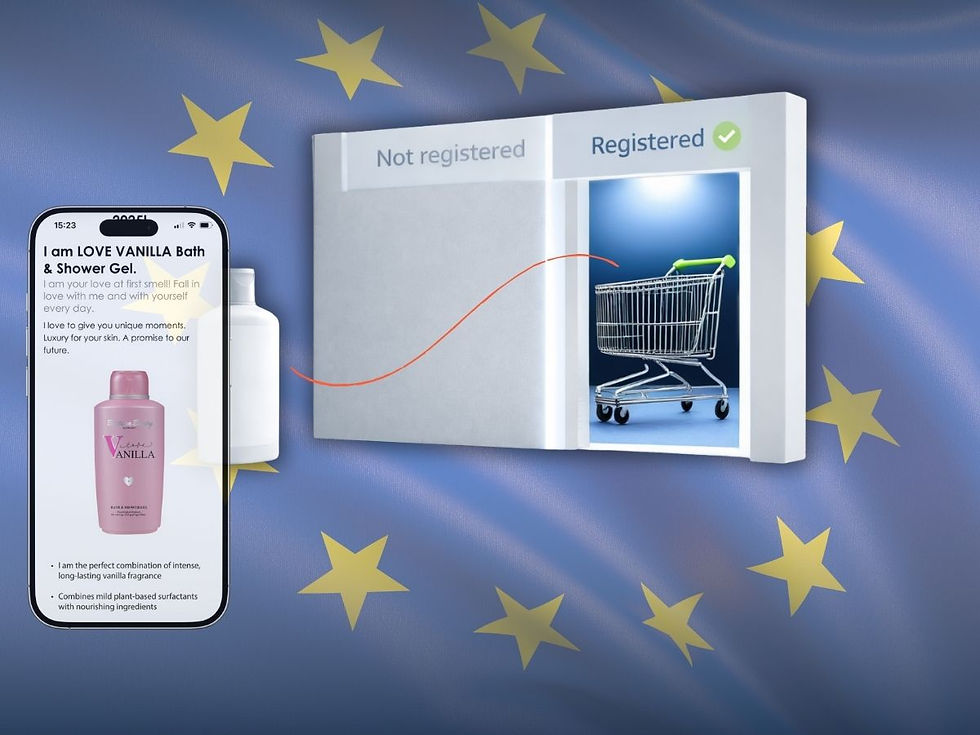Smartphone: "information weapon" of consumers with an eye on sustainability
- ingaellenkastens

- Feb 7, 2023
- 3 min read
Updated: Feb 21, 2025

The outsourced brain
This is how psychologist Christian Montag described the smartphone in the FAZ: If it were lost, sheer panic would break out in most of us. "My contacts!" "My photos and videos!" "How am I supposed to maintain my TikTok and Instagram channel now?" Yes, there is a lot of life in the smartphone, a lot of intimacy. And importantly, a whole lot of relationship with others. Isn't it?
For most people, the little device has become a kind of digital Swiss Army knife in terms of self-expression and relationship building. The faith, indeed the trust, that we place in the smartphone in this regard is immense. We carry it with us at all times of the day and night as a matter of course. For many people, the number of glances at the display now exceeds the number of glances at the face of a fellow human being.

Samrtphone as a driver of required sustainability
In the media, we are increasingly reading warnings about the "smartphone drug" and the associated "cell phone addiction". Well, according to a 2018 study, 18- to 19-year-olds already spend 340 minutes a day online. And the trend is (strongly) upward.
The needs that the smartphone fulfills for us are growing continuously: There is the urge to make new contacts or just quickly get or stay in touch with friends. We want to make sure we hear something new. We want to satisfy our curiosity and our urge to "look behind the scenes".
Let's stick with the last need. For decades, we couldn't really look "behind" brands and products. Labels and seals took over the task of telling us information about the product. The smartphone opened up a new world, and thus significantly boosted our need to look "behind" products and brands: The change in consumers' awareness and questions about sustainability comes not least from the fact that we as consumers can now question everything with our smartphone.
"The "human-smartphone partnership" has taken on an equal and independent role in our firmly in our everyday lives." Thomas Heid. German Ethnograph at Ludwig Maximilan University Munich
From the consumer's point of view, the smartphone is "the weapon" for uncovering sustainability gaps in the company. Companies should actively take advantage of this and seek communication with the target group on this topic via this medium. Because:
Sustainability is becoming a matter of course
Not least the omnipresence of the smartphone, this "being able to inform and look in everywhere" has led to our consumer society becoming accustomed to ever new standards over the years: if "quality" was an outstanding quality mark for household appliances back then, it is taken for granted today. Or "safety" in cars: a matter of course! And no telecommunications provider can lure a customer behind the stove with "stay mobile" anymore. And "sustainability" as a brand attribute is also galloping toward a gray place of self-evidence.
"Consumers increasingly see sustainability as a matter of course and not as a justification for charging higher prices. To remain competitive, companies therefore need to rethink now at the latest." Andreas von der Gathen, Co-CEO Simon-Kucher Partners
Sustainability is therefore not a "nice to have" in communications and marketing. Rather, it is becoming a "must have" in thinking about future business models, the effects of which will have consequences at numerous corporate levels. Many of these are not even on the radar today - such as employer branding. But say it yourself:
Who wants to work in a company
associated with "human rights violations"?
And how quickly did we check our smartphone to see if there was already any information about it...?
If a company wants to, or even has to, position itself credibly in terms of sustainability, it would be well advised not to talk about sustainability alone. But to show it and to be openly measured by results. It was not without reason that we in the Narravero team never asked ourselves what a new, credible sustainability communication should be about: Via the smartphone. In no other medium are people so trained to do research.


